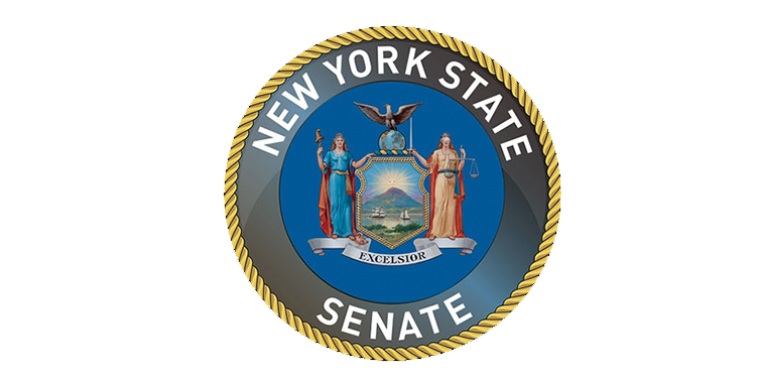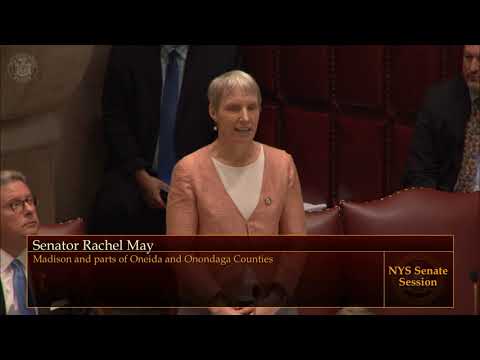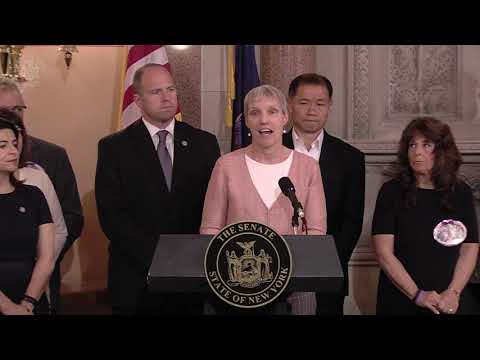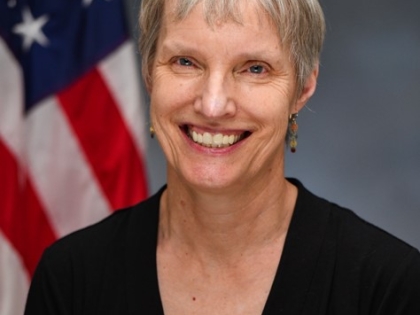
Senator May Reports Highlights of the 2021-2022 Senate One House Budget
March 15, 2021

Albany, NY - Senator Rachel May (D-Onondaga, Madison, Oneida) is proud to announce the passage of the Senate One House Budget which prioritizes working New Yorkers, pandemic recovery, and revenue generation for the state.
Highlights of Senator May’s specific budget requests:
- $624 million to raise wages for the lowest-paid home health care workers
- $200 million for nursing homes to improve staffing ratios and better pay their staff
- $27 million to clear waitlists for in-home services for the elderly provided by County area agencies on aging (which is estimated to save $60 million in Medicaid spending)
- $67.6 million for debt service at the three SUNY hospitals, including Upstate
- $24 million for capital improvements to Syracuse Educational Opportunity Center
- $9.4 million for rural health care access and network development
- $100 million to the New York Center for the Arts for non-profit cultural institutions
- Rejecting dissolution of Canal Recreationway Commission
- Extending the authority of the Syracuse Joint Schools Construction Board to modernize educational facilities in the Syracuse City School District.
- $2 million for New York State Enhanced Services to Refugees Program
- $40 million for hazard pay for SUNY frontline workers
“We cannot afford another year of austerity spending,” said Senator May. “New Yorkers need support now to propel us out of the pandemic and ensure equitable and long-lasting recovery for all of us. I am proud to secure this funding for essential home care workers, nursing home improvements, and rural health access. We must ensure that those who have helped carry us through this crisis receive the dignified pay they deserve, and that those most vulnerable among us get the dignified care they so desperately need. In addition, this is a budget that recognizes how much we value our schools, colleges, hospitals, arts organizations, and other institutions that enhance the quality of life in Central New York.”
Other important highlights:
- Phasing in Foundation Aid for our schools over three years, and bringing every district up at least to 60% of what the formula promises it
- Rejecting across the board Medicaid cuts
- Restoring AIM funding to local governments
- Supporting small business with $1 billion investment
- $500 million for Small Business Assistance Grants
- $500 million for Commercial Rent Relief
- A property tax circuit breaker which provides tax relief to lower- and middle-class homeowners with high property tax burdens
- $500 million to fully-fund full-day prekindergarten statewide
- $400 million in rental assistance for those facing rent arrears, on top of the Federal money coming
- $200 million for a Housing Access Voucher Program for those facing imminent homelessness, and $200 million for homeowners facing foreclosure
- Making the Nourish New York program permanent, connecting farmers to food banks and providing financial support for people to benefit from agricultural products
- $3 billion Clean Water, Green Jobs, Green New York Environmental Bond Act to help improve water quality, prevent flooding, and mitigate effects from climate change
- Stopping cuts to Statewide Mass Transportation Operating Assistance and providing an additional $385 million
- $100 million for the Extreme Winter Recovery program ($65 million restoration/$35 million additional funding)
- $50 million capital improvements for zoos, botanic gardens, and aquaria
- $4 million to help counties expand early voting
Some additional local victories in the Senate budget:
- $1.5 million for child care facilitated enrollment demonstration projects in Onondaga County, Erie County, and New York City
- Allowing contiguous counties to share jails, eliminating requirement that each county has own separate jail and allowing them to save money
Highlights of fair revenue generation:
- Increasing the top state personal income tax rate on the highest earners raising $4.15 billion in SFY 2021-22
- Imposing a surcharge on high income earners for 2021, 2022, and 2023, would provide $1.5 billion in SFY 2021-22
- Creating a 1% surcharge on capital gains income for taxpayers subject to the top State personal income tax rate, raising $614 million in SFY 2021-22
- Raising $813 million in new revenue for SFY 2021-22 by increasing the corporate franchise tax by three percentage points
- Reintroducing the capital base text to the capital franchise tax, raising $151 million in SFY 2021-22
- Providing for a two percent increase in the estate tax rate (estates at $5.93 million and above for 2021) increasing revenue by $162 million in SFY 2021-22
“The pandemic has created not just a public health crisis, but an economic crisis,” said Senator May. “New York State must invest in both the safety and dignity of our workers and residents, and in a fair recovery plan that will provide everyone an opportunity to thrive. We have not seen a crisis of this magnitude in generations, and we must enact bold visions for the future of our state. The federal support provided to states and localities will help address the immediate costs of responding to the pandemic, but COVID-19 has revealed profound weaknesses and inequities in our health, education, transportation, and social services that demand a more sustained public investment. For years, we have been pushing the costs of such services onto property tax payers, many of them living on fixed incomes and struggling to stay in their homes. This is why I am proud to support common sense and fair revenue generation from the wealthiest among us, many of whom have seen their wealth flourish during the pandemic. The Senate’s proposed budget provides crucial funding to the programs we need, while closing funding gaps that have been widening for years.”
# # #
Share this Article or Press Release
Newsroom
Go to Newsroom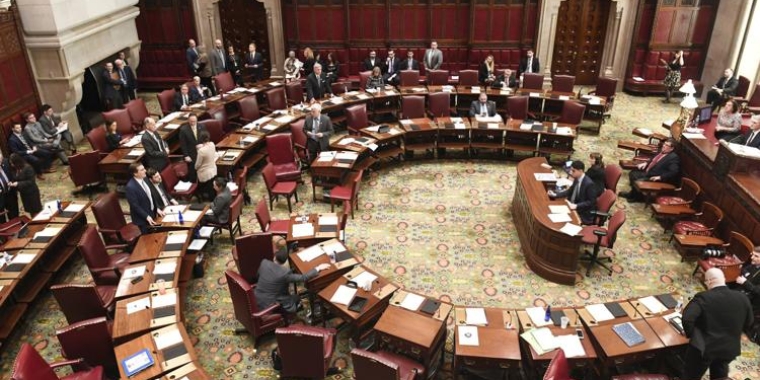
Senator Rachel May’s Week in Review
June 7, 2019
